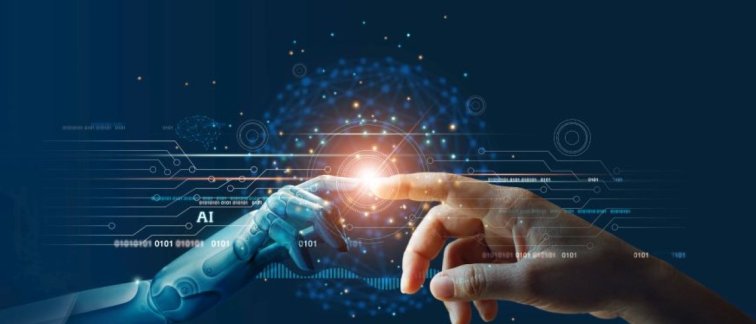By "better," Schut refers to making patients cure better, but also to improving the way we work in the lab and in healthcare. By "bytes," he means smart technology, specifically AI, the ability of computer algorithms to draw conclusions without direct human interference. Doctors already use AI to support medical decisions, but AI can do more, for example, in the lab. Schut is therefore focused on the question of how scientific AI discoveries can quickly get into the lab and into healthcare, and how they can be used properly and reliably.
Algorithm in laboratory test
Amsterdam UMC already uses AI in several ways, also in the lab. For example, using AI has greatly improved the heel prick screening of congenital thyroid disease (congenital hypothyroidism ). As a result, fewer children are wrongly referred for further testing while no patients are missed. Artificial intelligence is also being used to treat patients with rheumatoid arthritis (rheumatism). These patients are always first prescribed the effective, safe and inexpensive drug methotrexate, but methotrexate does not work for everyone. An algorithm can predict who will not respond to this drug so that other medication can be prescribed immediately. When diagnosing dementia in a patient, a mathematical formula based on five blood values can indicate the course of cognitive decline and predict Alzheimer's disease. Finally, in the laboratory, AI reduces the number of unnecessary blood samples when diagnosing infection. Instead of the "gold standard blood sample" that takes 24-72 hours, the algorithm can predict the outcome of the blood sample with almost 80% accuracy based on demographics, vital signs, medications, and laboratory and radiology results. These are all examples of how Artificial Intelligence can be used to test better and faster with information that already exists. This saves time and costs.
Unknown makes unloved
The more data the algorithm gets, the better it can do its job. But both laboratory and clinic staff think too little about AI models when conducting research and working with patients because it seems too complicated. Schut sees it as his task to change this: "'Unknown makes unloved' may be the reason that complex AI models are underused, a task for us to preach that."
Source (in Dutch): Amsterdam UMC

